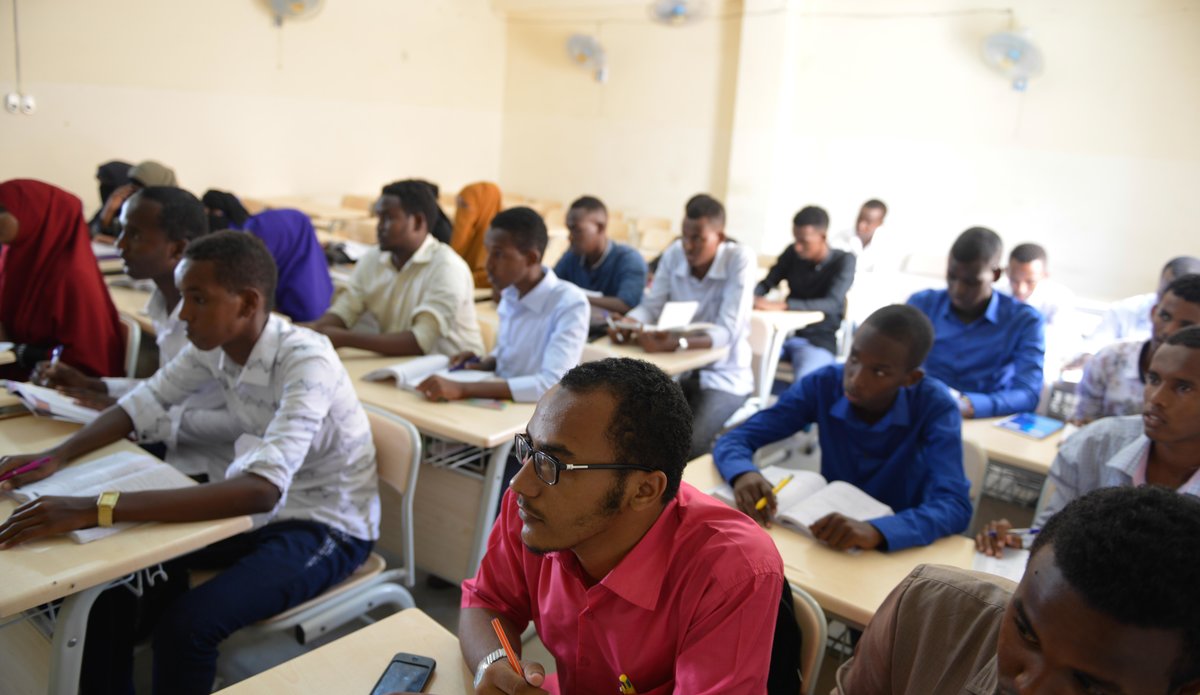University students exchange views on Somalia’s 2016 electoral process
A group of second-year students is listening closely to the retired police general Jama Mohamed Ghalib as he delivers an hour-long lecture on Somalia’s turbulent political history in a classroom at Simad University.
A prolific writer who rose to the position of interior minister during the regime of Gen. Siad Barre, Mr. Ghalib is comparing this year’s electoral process to the universal suffrage elections held in Somalia in the 1960s and the 2012 electoral process that chose the country’s ninth federal parliament.
“In the 1960s, you’d go to a polling station and cast your vote where you wanted to go,” recalled the grey-haired senior university lecturer. “(Today) there is no possibility of one-man, one-vote because of the insecurity in the country. But they wanted something to be different from what it was in 2012. They wanted to make it appear to be progress, and maybe it is.”
None of his students was alive the last time Somalia held a one-person, one-vote election in 1969. And most were still teenagers when 135 traditional elders gathered in Mogadishu four years ago to elect 275 members of the federal parliament.
Under this year’s complex indirect electoral model, none of these students will cast a ballot for the 329 seats at stake in both houses of Somalia’s parliament this year. Only members of the country’s regional assemblies and 14,025 electoral college delegates chosen by traditional clan elders are taking part in this year’s voting.
But these young Somalis retain a keen interest in the 2016 electoral process and harbour high expectations for the legislators and president who will govern their country through 2020.
“I am hoping the incoming President will give priority to peace-building efforts,” says political science student Adow Abdulahi Isack.
“Secondly, he should work towards providing free education, especially primary and secondary schooling, to children from poor families.”
Some of Mr. Isack’s classmates give this year’s indirect electoral process a good grade.
“If I think as a political science student, I would say that this is a good process,” says student Amal Ali. “It is being carried out in line with international practices and will go a long way towards uniting the people of Somalia.”
Some students view the indirect 2016 electoral process as a vital first step on the country’s path to democracy. They are particularly encouraged by the number of young candidates who have won election to the House of the People.
“In the past we have tested the leadership of the old people,” says student Farhano Abdulkadir. “The election of youth leaders is very good. The youth will inject fresh ideas that will be helpful in the country’s development.”
 UN
UN





